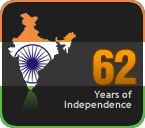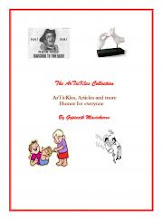
Published in 2011 by Wisdom Tree
ISBN: 978-81-8328-181-2
Genre: Fiction / Short Stories
Each of us would have had some childhood experiences that we come out with in our conversations in life or when opportunity presents itself and nudges you down memory lane, feel the nostalgia take charge of ourselves. But if we were to ask ourselves is there some instance we would like to narrate, maybe we would ask ourselves whether any of our childhood experiences were really worthy of being a good tale for someone to relish? We would look for rare, extraordinary instances that may astound readers or listeners – and perhaps sulk, citing destiny not being kind enough to have conferred us with such exciting out-of-the-world instances, as some others have been!
But this may not be everyone’s predicament. Writers like Gautam Benegal would recount his childhood days and tell us the story of Tutul and his friends all of 9 and 10 years of age, living in a paara in Calcutta in the 70’s and 80’s, with the panache of a master storyteller. That is what he did in “1/7, Bondel Road” published recently by Wisdom Tree which offers 10 brilliantly sketched vignettes of those growing up years. There is nothing unusual or spectacular about the stories that have been told, except the manner in which they have been told – unarming simplicity, mischievous charm, liberal sprinkling of humour embellish the narrative in this engrossing collection of endearing short stories. One wishes they would just go on - surely, Tutul had experienced more, that the author has yet to tell!?!
Tutul, the protagonist of the stories, has Bhultu, Anondo, Shushanto as his playmates joining in a game of badminton, cricket or football. While one is brought up in a household struggling to make ends meet, another enjoys the pleasures of electronic remote controlled toy cars, comics and books that his father could really buy! The different backgrounds and the consequential cracks in the friendly relationships beckons Tutul’s skills to come to the fore as he is found balancing differences between his friends. One would wonder if a career in international diplomacy was just the right thing for young Tutul?! But then, he had errands to run, important tasks thrust upon him to ..er.. forget and rescue the hungry households living in his locality during a particularly bad monsoon, in which torrential rains ravaged the city Calcutta, before he could take on countries.
Tutul’s early fondness for paintings and the encouragement from friends’ parents followed up by a humorous account of his first-ever effort to hold a private painting exhibition in his very home, (on the sly, of course), tells the reader of the difficulties of finding such creatures as ‘interested patrons’. The story of the cyclist trying to raise funds for his ailing son and the reactions of the folks living in his neighbourhood then captures the lives we live even today – causes, fund-raiser events, supporters, critics, controversies, - they all remain, while the only thing that changes is the means – the humble cycle gives way to social media pages!
The television episode dealt with in immaculate detail of hardware and machinations pertaining to those days in the '70s, when ‘Catching the signal’ was both art and science. A thoroughly enjoyable piece, that I felt was enacted before me, as I read it! It also reminded me of the early days when TV was a novelty and how hundreds of us would huddle into a single room in Mumbai…but then that would have to be another story for another post! Another enjoyable story is the prank young Tutul plays on his co-passengers, while on a train journey – an ex-tempore gag, while getting all the attention and stealing the limelight for sure! Even the recent flash-mobs breaking into a Kolaveri-dance would pale in front of this one!
This post is about 1/7, Bondel Road – the book - a must read for one and all – for its simple narrative style. It is not just about Calcutta or the ‘70s it is talking about – it is about growing up. Don’t we all go through this phase of life, without an exception? Gautam Benegal, a writer, National Award winning animation film maker, artist and cartoonist, would surely have more interesting episodes to share with us. His debut book of short stories leaves the reader wanting more…
Rating: 4.5 / 5















